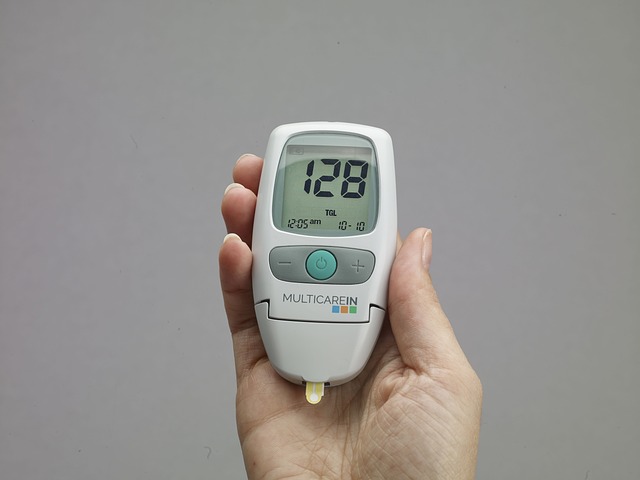The UK Vitamin B12 Blood Test is a simple procedure to assess cholesterol levels, crucial for cardiovascular health. Total cholesterol below 5.0 mmol/L is ideal; higher readings and unbalanced LDL ('bad') to HDL ('good' – 3.0+ vs. 1.0-1.2 mmol/L) indicate increased heart disease risk. Lifestyle changes like diet, exercise, stress management, weight control, and avoiding smoking are key to maintaining healthy cholesterol levels after the test.
In the pursuit of optimal health, understanding cholesterol levels through a simple blood test is an essential step. This comprehensive guide delves into the intricacies of cholesterol testing via blood examinations in the UK. From comprehending the significance of various cholesterol types to interpreting test results, you’ll gain valuable insights. Learn how to maintain healthy cholesterol levels with practical tips tailored for your well-being. Discover why a UK Vitamin B12 Blood Test can be a game-changer in monitoring your cardiovascular health.
- Understanding Cholesterol Levels: What Do They Mean?
- The Process of Blood Testing for Cholesterol
- Interpreting Results and Maintaining Healthy Levels
Understanding Cholesterol Levels: What Do They Mean?
Cholesterol levels, often talked about in the context of UK Vitamin B12 blood tests, are a critical indicator of overall health, particularly cardiovascular health. They refer to the amount of cholesterol—a waxy substance—in your blood. While essential for building cells and producing hormones, high cholesterol levels can lead to plaque buildup in your arteries, increasing the risk of heart disease and stroke.
Understanding your cholesterol numbers is key to managing your health. A blood test typically measures total cholesterol, LDL (low-density lipoprotein) or “bad” cholesterol, HDL (high-density lipoprotein) or “good” cholesterol, and sometimes triglycerides. Ideal levels vary depending on age, gender, and other factors. Your healthcare provider can interpret your results and recommend lifestyle changes or medications if necessary to keep your cholesterol in a healthy range.
The Process of Blood Testing for Cholesterol
Cholesterol level testing via blood tests is a straightforward and non-invasive procedure. Typically, a healthcare professional will take a small sample of your blood, usually from your arm, using a needle. This sample is then analysed in a laboratory to measure the levels of different types of cholesterol present. In the UK, a Vitamin B12 blood test is often included as part of this process, as maintaining healthy cholesterol levels is closely linked to overall nutritional well-being.
The analysis provides valuable insights into your cardiovascular health. It can detect elevated levels of low-density lipoprotein (LDL) cholesterol, often referred to as ‘bad’ cholesterol, and low levels of high-density lipoprotein (HDL) cholesterol, known as ‘good’ cholesterol. These results help healthcare providers assess your risk for heart disease and take appropriate measures to manage cholesterol levels effectively.
Interpreting Results and Maintaining Healthy Levels
After your cholesterol level testing through a UK Vitamin B12 Blood Test, interpreting the results is crucial for understanding your health status. The test typically provides values for total cholesterol, LDL (low-density lipoprotein) or ‘bad’ cholesterol, HDL (high-density lipoprotein) or ‘good’ cholesterol, and sometimes triglycerides. A reading of 5.0 mmol/L or below is generally considered optimal for total cholesterol levels. Higher readings may indicate an increased risk of heart disease. For instance, LDL cholesterol above 3.0 mmol/L is seen as a concern, while HDL levels lower than 1.0 mmol/L in men and 1.2 mmol/L in women are not ideal.
To maintain healthy cholesterol levels, lifestyle adjustments often play a significant role. Dietary changes such as adopting a balanced diet low in saturated fats and trans fats can help reduce LDL cholesterol. Regular physical activity, typically recommended at least 150 minutes of moderate-intensity aerobic exercise or 75 minutes of vigorous exercise per week, contributes to better overall health and can positively impact cholesterol levels. Additionally, managing stress, maintaining a healthy weight, and avoiding smoking are essential steps in keeping cholesterol within optimal ranges, enhancing your cardiovascular health and reducing the risk of associated conditions like heart disease.
Cholesterol level testing with blood tests, such as a comprehensive UK Vitamin B12 Blood Test, is a crucial step in maintaining heart health. By understanding your cholesterol levels and taking proactive measures based on the results, you can significantly reduce risks associated with cardiovascular diseases. Regular monitoring and healthy lifestyle choices are key to keeping your cholesterol in check and ensuring a longer, healthier life.
